Chinese Lyricism Workshop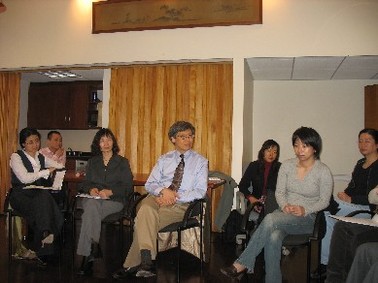 A workshop on Chinese lyricism sponsored by the CCK-IUC took place in the Common Room of the Harvard Yen-ching Institute at Harvard University on April 14, 2007. With paper topics ranging from the “Nineteen Ancient Poems” (gushi shijiushou), the sonic therapeutics of Mei Sheng’s “Seven Stimuli” (qi fa), to poems by and the career of Chinese poets such as Jiang Wenye and Aiqing, presenters of the workshop explored issues concerning both the poetics and politics of classical and modern Chinese poetry in relation to the conventions and inventions of poetic subjectivities and languages. Wang Anyi Lecture at Harvard University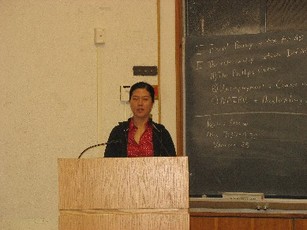 On April 15, 2007, renowned Chinese writer Wang Anyi gave a talk, sponsored by the CCK-IUC, on her life and writing experiences in Yen-ching auditorium at Harvard University. The inclement weather did not stop people from attending the event where Wang, a remarkably engaging writer and storyteller, shared with her audience not only her sources of inspiration for writing but also her understanding of writings by other contemporary Chinese writers. Taiwan and Its Contexts, Yale UniversitySponsored by the CCK-IUC, National Science Council in Taiwan, and the Council on East Asian Studies at Yale University, the international conference on “Taiwan and Its Contexts” was convened at Yale University from April 26-28, 2007. Papers presented in the event responded to Dr. Frederick Chien’s keynote speech that emphasized the irreplaceable role Taiwan plays on the international arena from various angles and demonstrated how Taiwan contributed to the world in fields such as literary production, political and economic developments, and science advancement. For instance, in his paper, Professor Liao Ping-hui of Tsing-hua University calls attention to an evaluation of the role of public intellectuals in Taiwan in the past two decades. Professor Chu Yun-han of National Taiwan University shared his scholarly view on the prospect of Taiwan’s democracy over the past few years. Professor Murray Rubinstein of Baruch College gave a comprehensive overview of the development of Taiwanese Studies in the U.S. thus far and offered a few projections on how the field may evolve in the near future in both Taiwan and the U.S. As the question of cultural communication has become increasingly important in global contexts, this event seeks to find new ways of understanding Taiwan and its achievement. In the end, by examining Taiwan’s cultural legacy, vitality, and history from various aspects, the conference successfully shed new light on the current situations in Taiwan (Chun-yu Lu and May-yi Shaw). Kinetic Vision Workshop, Harvard University During the Six Dynasties, an energetic period in Chinese cultural and intellectual history, there was a proliferation of secular and religious writings on “roaming and seeing” (you guan 游觀). Such a kinetic vision entails not only the observation of physical landscape as the writer moves through it, but also a meditative visualization that establishes new kinds of visual relations between the phenomenal world and the self. Vision is directed both outward and inward, as the phenomenal world and the human body itself are construed as an image capable of embodying truth. The workshop, convened on May 25-26 at Harvard University, brought together a group of scholars working in different fields—literature, history, religion, and art—to promote a lively, interdisciplinary exchange of ideas and perspectives on the emergence of new visual discourses in this period. Annual Meeting of the International Association of Chinese Linguistics and 19th Annual North American Conference on Chinese LinguisticsSupported by CCK Foundation and Columbia University, the joint conference of the 15th Annual Meeting of the International Association of Chinese Linguistics (IACL) and 19th Annual North American Conference on Chinese Linguistics (NACCL) was held on May 25-27, 2007 at Columbia University in New York City. Prof. Paul Anderer, Vice Provost for International Relations from Columbia University, and Prof. Robert Hymes, chairman of the university’s Department of East Asian Languages and Cultures, opened the conference by welcoming more than 200 scholars from 13 countries. Following the opening ceremony, three key-note speakers, Prof. C-T James Huang of Harvard University, Prof. Alain Peyraube of France Academy of Humanities and Social Sciences, and Prof. Jianxuan Sheng of Chinese Academy of Social Sciences, delivered their speeches to the full audience. Their speeches were both pioneering and inspiring. The right tone and the high standards were set for the conference. For two and a half days, scholars, including 14 prominent invited speakers and some fresh faces to the field, presented their papers, exchanged ideas and explored new frontiers. The conference reached its peak in the evening of May 26 when organizers treated all participants to a sit-down dinner at the Rotunda of Columbia’s monumental Low Library. The setting was splendid, the food was delicious and the atmosphere was very warm. As a tradition of IACL, and to promote, recognize, and reward young scholars in the field, "Young Scholar Award" and "Mantaro J. Hashimoto Award in Phonology” were presented to two winners at the banquet. Ms. Chengqing Song from the University of Wisconsin-Madison and Mr. Young Wang from Chinese Academy of Social Sciences shared the honors. Prof. Ken-ichi Takashima of the University of British Columbia was elected as the new President of IACL. The conference was the largest one of its kind ever held in North America, and was particularly successful in attracting many young and promising graduate students. Early China SeminarDuring the Spring of 2007, the Early China Seminar at Columbia University continued its wide-ranging discussions of the history, culture, archaeology, language, and art of China from prehistoric times up to 200 C.E. Profs. David Prager Branner [林德威] of the University of Maryland and Li Feng 李峰 of Columbia University served as co-Chairs. The Seminar’s discussions continue to focus on problems associated with literacy in early China. Presenters included some of the preeminent specialists on this period in greater China and the West, and the 30 or so participants came from institutions all over the northeast of the United States. The Seminar is the premiere venue for the study of Early China on the East Coast of the United States and has been supported since its inception by the CCKF. Eight papers were presented over the course of four meetings:
|
Archives
September 2020
Categories |

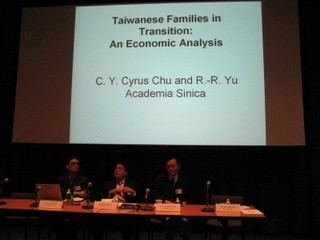
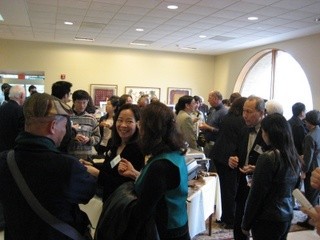
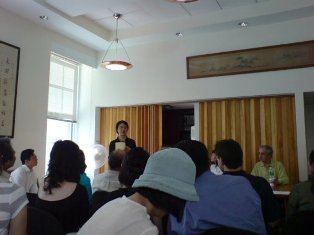
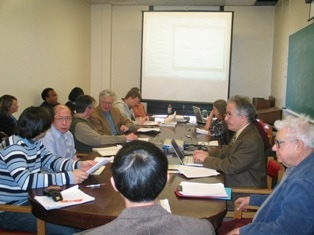
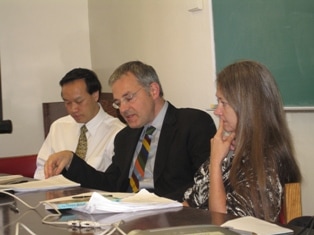
 RSS Feed
RSS Feed